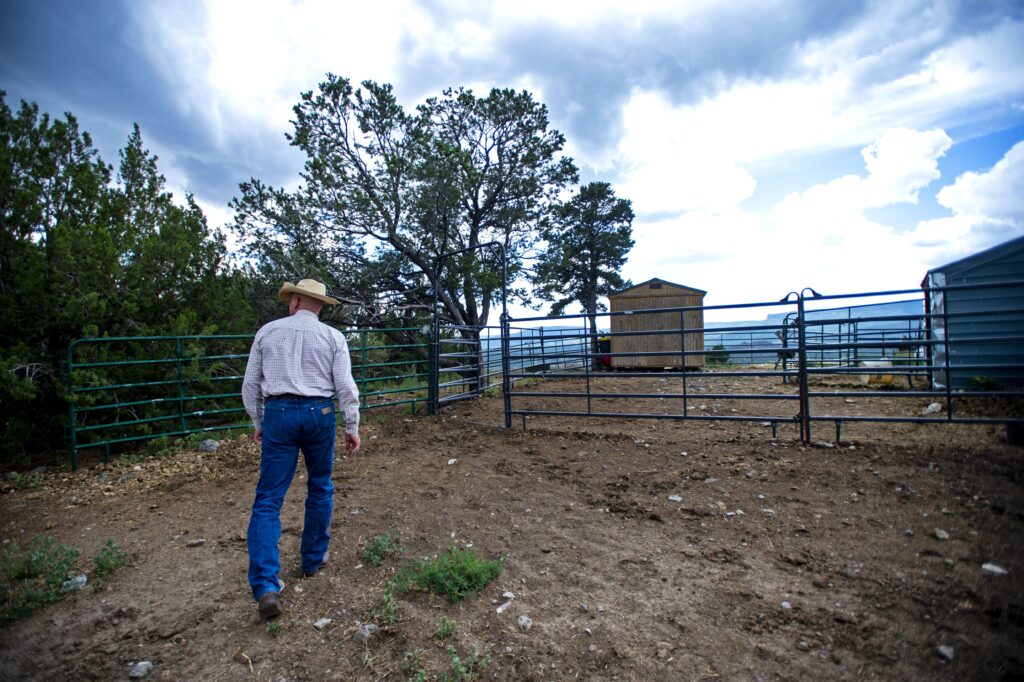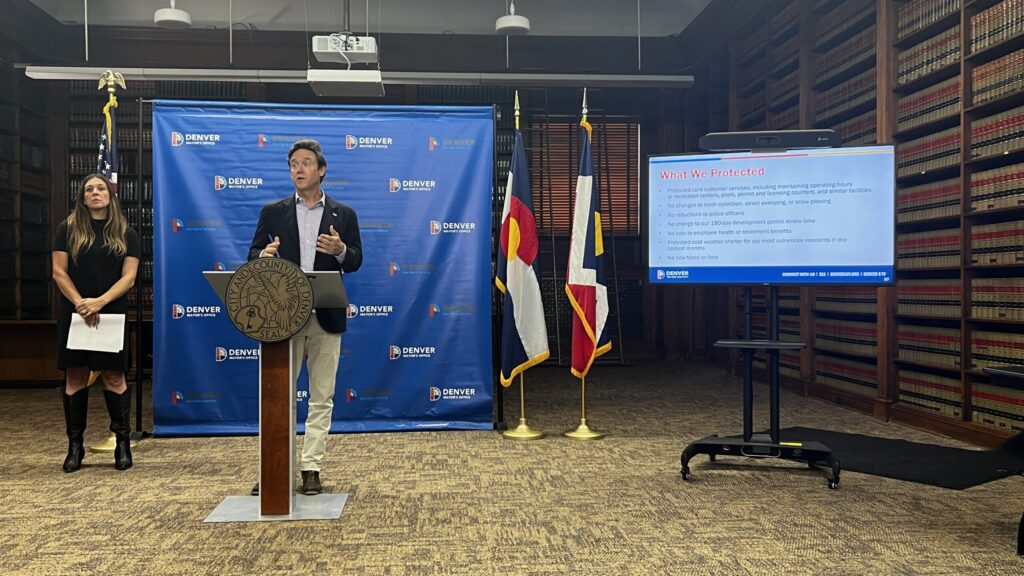Sweeping changes to energy policy proposed with days left in Colorado legislative session

Republican state Sen. Ray Scott has proposed sweeping changes to energy policy and statutes in Colorado with only days left in the legislative session.
The 57-page bill from Scott, Senate Bill 301, addresses everything from increasing registration fees for electric vehicles, to a restructuring of the Colorado Energy Office.
“The Energy Office’s original focus on renewables may have been justified at the time, but times have changed,” Scott, from Grand Junction, said in a statement.
The legislation would expand the office’s focus to include nuclear and hydropower, while giving the oil and gas industry a greater voice at the table.
It would eliminate the Wind for Schools Grant Program, which was established in 2007 by federal dollars to provide grants to public schools and community colleges for wind generation projects.
Similarly, the bill would eliminate the Renewable Energy and Energy Efficiency for Schools Program, which provides school districts with loans for renewables and efficiency projects.
Senate Bill 301 also would eliminate the Green Building Incentive Pilot Program, which was established to incentivize making energy efficiency improvements.
It also would remove the Colorado Energy Office’s involvement with the state Forest Service and the Air Quality Control Commission to support the increased use of biomass, or organic matter like wood, which is used as a fuel.
In an effort to address abandoned oil and gas facilities, the legislation would identify private voluntary methods to address funding shortfalls associated with long-term management.
Calling it “archaic and counterproductive,” Scott has also proposed eliminating a prohibition on investor-owned utilities owning natural gas reserves. Scott said the prohibition raises costs for consumers.
An investor-owned utility is owned by private investors and members. The legislation would direct the state to create rules allowing an investor-owned utility to acquire an interest in Colorado-based natural gas reserves for up to 50 percent of its needs.
With only 13 days left in the session, the measure faces an uphill battle in a divided legislature. Democrats are sure to object to many components of the bill.
And with a broad title, “Concerning energy-related statutes,” the legislation is open to a wide range of amendments, some of which could attempt to crackdown on the oil and gas industry, despite the intent of the legislation.
The legislation did not have a sponsor in the Democratic-controlled House upon being introduced on Wednesday.
Scott said he developed ideas for the legislation after chairing the Senate Select Committee on Energy and Environment, a new committee in the Republican Senate this year that was charged with examining a wide berth of energy-related issues.
Conservation Colorado, the state’s leading environmental organization, said it was still reviewing Scott’s legislation. But the group is likely to have issues with several parts of the bill, especially anything that erodes renewables and efficiency efforts.
“Use of renewables have gone mainstream, and I came to believe, based on hearings we held at the statehouse this session, that Colorado shouldn’t fence-in a potentially limitless energy future by focusing on one option to the exclusion of others,” Scott said.
“No state in the nation can outshine Colorado in terms of the variety of energy options we can pursue, from renewables to traditionals and everything in between, and this bill aims at ensuring that we don’t sell our state economy or energy consumers short by putting all our energy eggs in one or even two baskets.”












